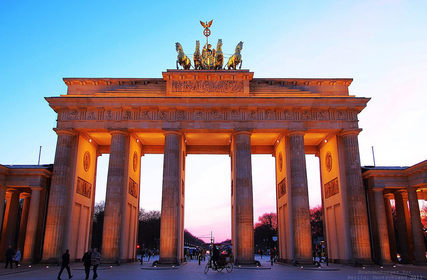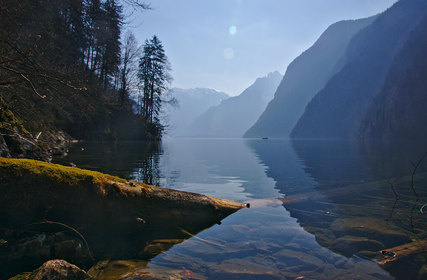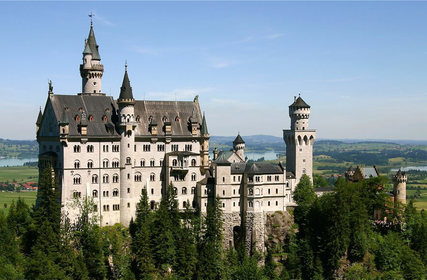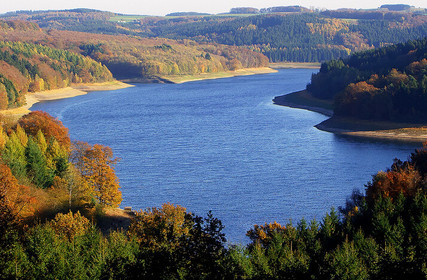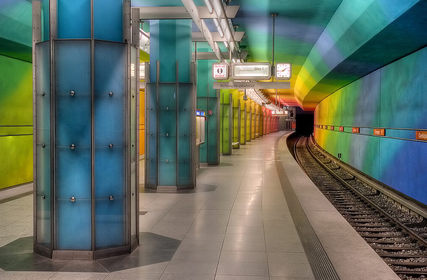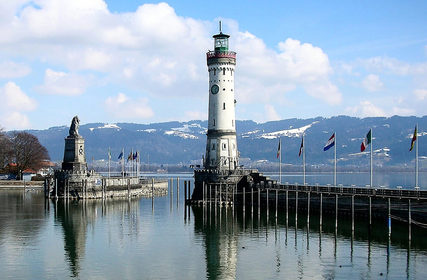Most popular locations in Vācija
-
Berlīne
Berlin is the capital a st city in Germany, which brings visitors to the city for economic, political and touristic reasons. A major stronghold for Germany’s government and financial decisions, un...
-
Moembris
-
Frankfurte pie Mainas
Germany is a European powerhouse that is a major force for economics, politics and industry. A country of vibrant cities and timber-housed villages, it’s difficult to pinpoint the top places to visit and best things to see.
As a destination, Germany is a vast and diverse country with much to offer in the way of attractions from world-class museums, lively festivals, the world’s best beer and gorgeous scenery including coastal plains, alpine areas and dense forests.
A brief history
Germany has a hugely disjointed past with regional territories, duchies, states and free cities being ruled by various cultures over millennia.
Wars between German nobility, Roman and French occupation, Prussian rule and the Treaty of Versailles have shaped a country that has a firm grasp on its heritage but strives to move forward. The result is a country speckled with magnificent royal palaces, awe-inspiring castles, excellent museums and fine architecture.
After World War II, Germany consisted of 2 states and unification was again under debate between East and West Germany however after the fall of the Berlin Wall, Germany is increasingly stamping its global presence via politics and European economic strength.
When to go
The busiest times to visit Germany are July and August when you will find the main tourist areas crowded. Tourists make the most of long days in the summer months so always make reservations for these peak months.
May, June, September, and early October are good months to time a trip to Germany, with agreeable weather, fewer people, and less travel stress. Bear in mind that the Oktoberfest in Munich will always require advance reservations.
Winter months see many hotels and attractions such as palaces and castles shut down so check opening hours in advance to avoid disappointment. Winter days are short, so keep this in mind so you can optimize every minute of daylight to full advantage including driving long distances.
Getting around
Germany is known for being efficient and this extends to transport on trains, buses and ferries. It is also home to major airports including Frankfurt, one of Europe’s largest airport hubs.
Trains generally run on time, so if you have a tendency to run behind schedule skip this as a transport option! Standard rail fares are expensive so you will need to research low cost fares but in general, best purchasing can be achieved with rail and buses by advance bookings.
Hiring a rental car is an excellent option as Germany has a superb road network and of course the famous Autobahns (highways) with no tolls for cars. Fuel up your car away from the more expensive Autobahn fuel stations, but it’s advisable to pay in cash in case international debit or credit cards are not accepted at smaller rural towns.
Meet the locals
Germans are deemed to be hard to get to know, but we guarantee you will meet locals wherever you are! Soak up some arts and culture in the city of Leipzig where you can visit the Bach Museum, or watch a performance at the Leipzig Opera House or Gewandhaus Concert Hall.
Take a table at a traditional kneipen (tavern) where you can drink German lager and eat spätzle (German noodles).
Warm up your vocal chords for a rousing oompah band song in Munich, Bavaria's beautiful capital city that is the gateway to the Alps and the location of the world-famous Oktoberfest.
Culture & customs
Germany has distinct traditions and a definitive sense of culture. You may be surprised to learn that many Western celebrations such as Easter and Christmas have strong origins linked to Germany – Easter egg hunts, gingerbread, and advent calendars.
Traditional German clothing is also globally recognized such as lederhosen (leather cropped pants) and dirndls (apron dresses), and Germany has a profound musical history with significant contributions from composers and folk music.
The landscape in Germany has also influenced food and agriculture – with long winters and short harvest periods Germany excelled in grain crops (wheat, hops, barley) which is still evident today in the huge beer brewing heritage.




